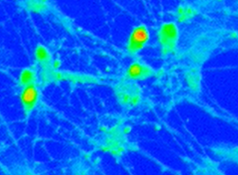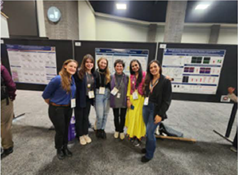The Cellular and Developmental Neurobiology Section has expertise in the development and regulation of GnRH neurons, cells essential for reproduction. Developmentally, GnRH neurons originate outside the CNS, in the nasal placode, and thereafter migrate into the brain. As they migrate, these cells mature. Once within the brain, GnRH neurons become integral components of the hypothalamic-pituitary-gonadal axis and exhibit pulses of GnRH secretion that are necessary for reproductive function. Disruption of the GnRH system results in idiopathic hypogonadotropic hypogonadism (IHH), a disorder that is characterized by delayed puberty and infertility.
Our ability to systematically manipulate the molecular and cellular biology of the GnRH system opens the route to understanding critical neurobiological issues such as phenotypic commitment, lineage and mechanisms involved in neuronal migration and craniofacial development. Translational collaborations focus on delineating the role of genes identified in IHH patients and subsequent changes induced by the mutation. In addition, the mechanisms regulating GnRH neuronal synchronization, as well as peptide secretion are examined to decipher the cellular characteristics underlying the dynamics of this highly regulated system.




